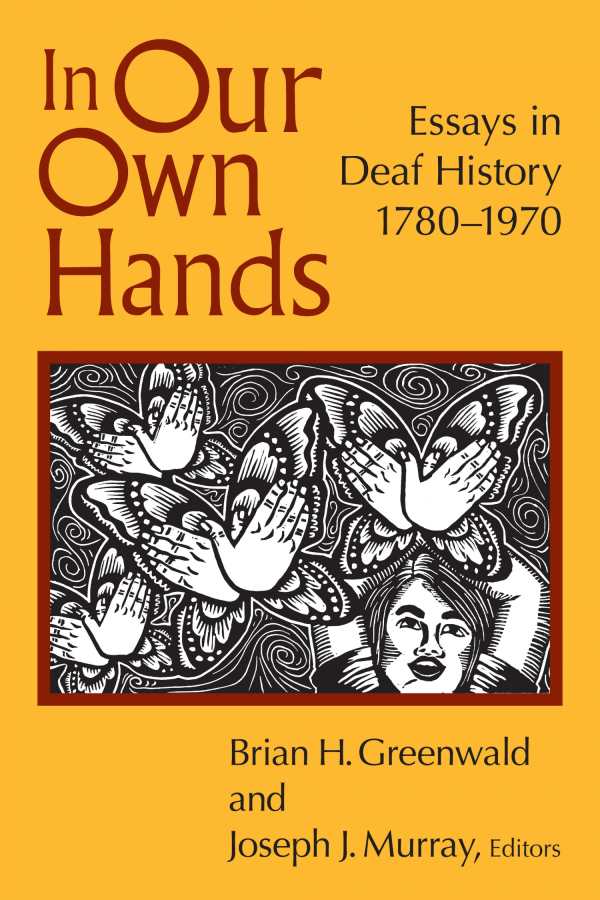In Our Own Hands
Essays in Deaf History, 1780–1970
This is an invaluable, pioneering volume of scholarship on Deaf history and culture.
In Our Own Hands: Essays in Deaf History, 1780-1970, edited by Brian H. Greenwald and Joseph J. Murray, gives voice to nearly two centuries of struggle and progress in America’s Deaf community.
This collection of essays by an esteemed group of academic researchers catalogs and analyzes the seldom-explored issues of agency and activism in the Deaf community. Each chapter explores a theme such as citizenship, autonomy, or race, often tied to a particular era. The chapters are organized roughly chronologically.
This unexamined and barely acknowledged realm of study—and, more importantly, of society—inextricably intersects with other issues like education, religion, and regional social conventions. By examining decades of the Deaf community’s efforts to overcome inequity, while also naming its undeniable place in United States history and culture, this collection affirms the deep value of the Deaf community as individuals and part of broader society, and it showcases the courage and determination that it has taken to bring deaf Americans to the level of equality, albeit imperfect, that they have today—and in doing so, it provides a push forward for further understanding and activism.
By using a variety of essayists and examining a wide swath of voices throughout history, the book shuns a generalized view of deaf culture, offering an appropriately nuanced view of each era and issue.
The tone is academic but easy to read and digest, with each essay evincing both research and intellectual and emotional care. The result is a profound, foundational understanding that is certain to help deaf citizens, scholars, and advocates to continue the legacies of those who’ve gone before them. Sign language and voice interpreters and other aides will be able to better understand the individuals they serve, and better grasp their opportunity as advocates for the community.
In Our Own Hands both affirms and furthers the vitality of deaf people, as individuals and a community, in broader American discourse.
Reviewed by
Melissa Wuske
Disclosure: This article is not an endorsement, but a review. The publisher of this book provided free copies of the book to have their book reviewed by a professional reviewer. No fee was paid by the publisher for this review. Foreword Reviews only recommends books that we love. Foreword Magazine, Inc. is disclosing this in accordance with the Federal Trade Commission’s 16 CFR, Part 255.

